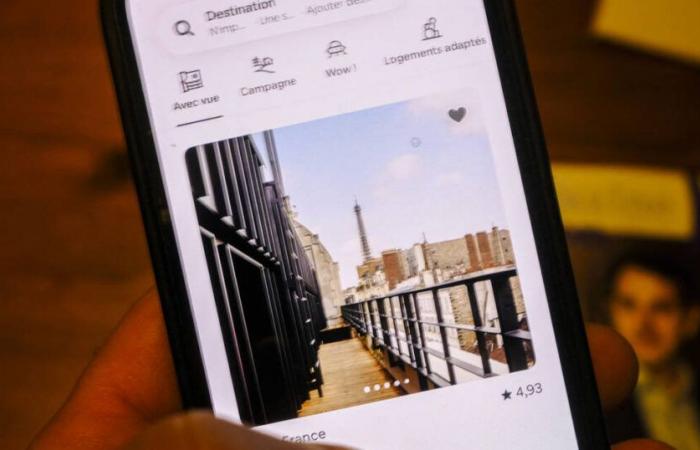The American short-term rental company announced this Monday, November 18, the launch of a portal allowing town halls to access its data. Which is actually a legal obligation.
A way to give pledges of cooperation or simply to regain control of the “narrative”, as we say in marketing language? While cities and resident groups have long been demanding more transparency from Airbnb, and barely ten days after Parliament passed a law regulating furnished tourist accommodation, the American platform announced this Monday, November 18, the upcoming opening of a portal to access its data for town halls. The declaration, made to France Info on the eve of the opening of the French Mayors' Show, allows Airbnb to show its credentials in the face of heated local elected officials.
Among the data provided by this portal – already online and responding to the name “Panda”, for National Access Portal to Airbnb Data – will appear according to France Info “the number of nights and travelers hosted by the hosts, the economic benefits generated by the stays”, or even “the number of accommodations and their nature (homestay, main residence, secondary residence or dedicated tourist furnished rentals) within the city and in each district”. What, for town halls, “better understand the main tourist flows and the activity of hosts, evaluate the benefits of furnished tourist rental locally and visualize the share of furnished tourist accommodation dedicated to short stays within each district”highlights the platform.
In reality, Airbnb, like all other short-term rental platforms, is already legally required to transmit this data – a text voted on in the European Parliament in 2023 even required that this transmission be monthly. Nothing really new, therefore, except accessibility to data in real time. “Airbnb presents something that is imposed by law as a voluntary approach… It’s as if I were asking for a medal because I pay my taxes,” jokes with Libé Ian Brossat. For the senator and communist advisor from Paris, who has been fighting for years against the excesses of the platform in the capital, the approach is certainly “swollen”, but this is a “very usual strategy on their part”. “They seek to show a more friendly face at a time when the noose is tightening against them,” adds the former deputy mayor for housing Anne Hidalgo.
A new “toolbox” for mayors
On November 7, the vote on the text often nicknamed “anti-Airbnb law” showed the extent of the fed-up against the American company. Supported by the socialist deputy for Pyrénées-Atlantiques Iñaki Echaniz and the Macronist deputy for Finistère Annaïg Le Meur, this bill brought together deputies from various parties, in a rare transpartisan unity, despite intense lobbying from the platform and several legislative twists and turns. . Proof that the subject of Airbnb, with what it causes in nuisance, price increases and the disappearance of housing from the market throughout the country, has become sensitive.
In the wake of the vote on the text in Parliament, which notably provides town halls with a “toolbox” to regulate furnished tourist accommodation, cities are starting to take measures. This is the case of Paris, which should decide this week during its municipal council to lower, as provided for in the new law, from 120 to 90 the maximum number of days per year during which an individual can legally rent their main residence .






